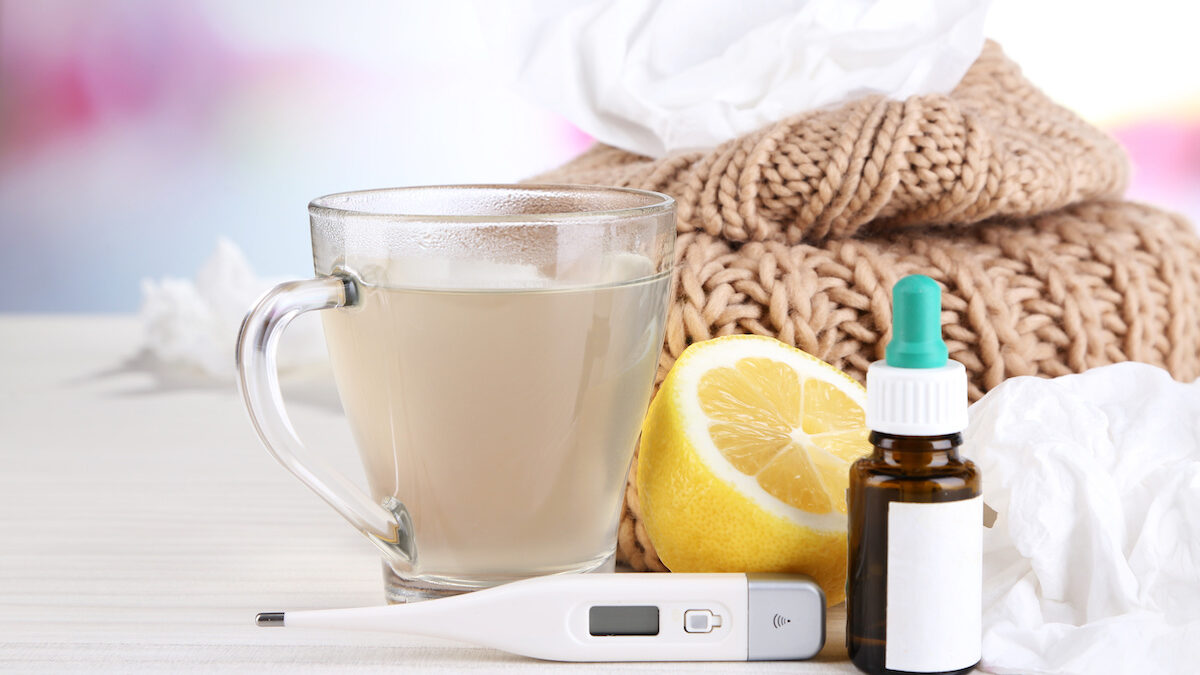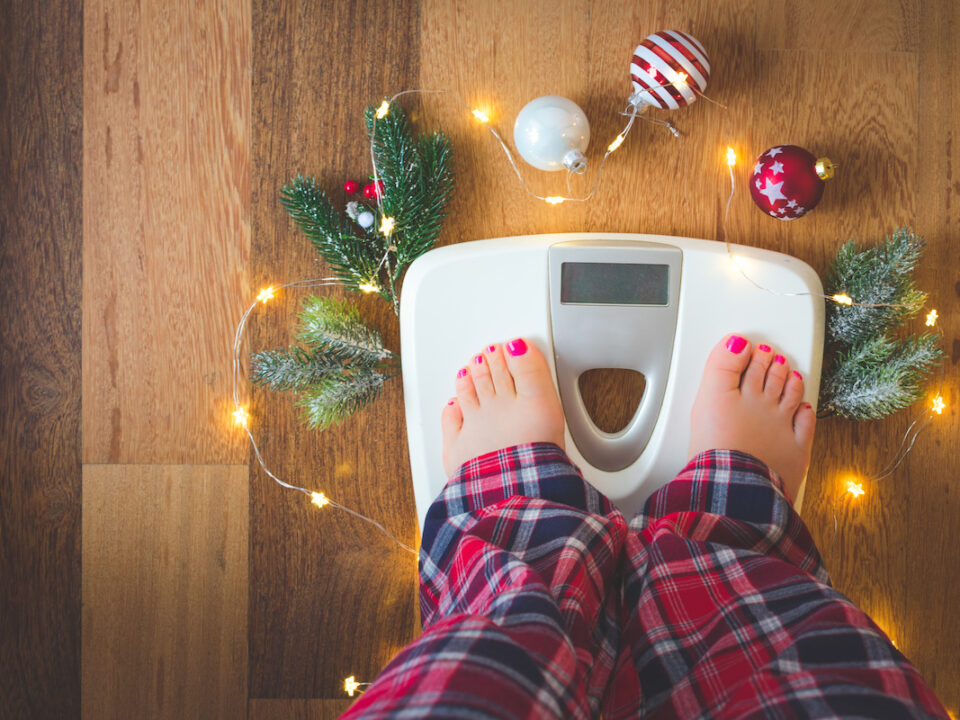Preparing for Cold and Flu Season in Georgia

As the balmy breezes of summer give way to the slightly cooler winds of winter in the Sunshine State, Floridians must gear up for the inevitable: cold and flu season. While our winters are milder than most, it doesn’t mean we’re immune to the seasonal sniffles. Now is the time to make sure that you and your loved ones remain healthy! But how can you best prepare for the cold and flu season in Georgia?
When is Cold and Flu Season in Georgia?
While the warmth can be a deterrent for some viruses, we still have a cold and flu season here in the south. In fact, cold and flu season starts around now–the month of October.
Why does flu season pick up in our state this time of year? There are several culprits, which include the influx of tourists, close-knit communities, and occasional cold snaps can create the perfect storm for cold and flu.
Recognizing these unique factors can help you understand why even in our warm state, it’s essential to prepare. The good news is that there is still time!
Take the Time to Stock Up on Essentials
Do you remember a time when you could feel a cold or flu coming on? Flu is especially notorious for coming on quickly and hitting us like a ton of bricks. This is why it’s important to stock up on essentials now. No one wants to make a run to the drugstore when they feel under the weather.
Stocking up ensures that you have the necessary supplies on hand when illness strikes, but it also allows for a quicker and more efficient response. This can potentially reduce the duration or severity of symptoms.
What You Must Have on Hand for Cold and Flu Season in Georgia
At the foundation of a well-stocked medicine cabinet are the tools to combat the most common cold and flu symptoms. Pain relievers, such as acetaminophen or ibuprofen, can alleviate headaches, muscle aches, and fevers.
Meanwhile, cough suppressants and expectorants can aid in managing persistent coughs and clearing mucus. Stuffy nose? Grab a nasal decongestant while you stock up. And, of course, a reliable thermometer is crucial to monitor for fevers, a common sign of many infections.
Don’t Forget the Soft Supplies
Stocking up isn’t just about the medications. Soft supplies like tissues are a must for runny noses and excessive sneezing. Choose softer, lotion-infused varieties to prevent a raw, chapped nose from frequent blowing.
It’s also worth having a good supply of hand sanitizers and disinfectant wipes. This can help curb the spread of viruses within your home, especially on frequently touched surfaces like doorknobs, light switches, and remote controls.
Special Considerations for Chronic Conditions
For individuals with chronic conditions, especially respiratory ones like asthma or COPD, cold and flu season can pose additional challenges. The viral infections can exacerbate symptoms or lead to more severe complications. Please be very careful and take preventative measures if you have chronic conditions.
Boosting Your Immunity
One of the best ways to prepare for cold and flu season is by boosting your immunity. A strong immune response not only helps prevent infections but can also reduce the severity and duration if we do get sick. One of the most effective ways to do this is through diet. Let’s start with the best foods for boosting your immunity.
Diet plays an indispensable role in supporting our immune function. Certain foods are renowned for their ability to enhance our body’s natural defense mechanisms:
- Citrus Fruits: Oranges, grapefruits, tangerines, and lemons are loaded with vitamin C, a vitamin crucial for the production of white blood cells. These cells play a significant role in fighting off infections.
- Leafy Greens: Spinach, kale, and Swiss chard are rich in vitamin C, as well as other antioxidants and beta carotene, which may increase our immune system’s infection-fighting ability.
- Nuts: Almonds, for instance, are packed with vitamin E, another potent antioxidant. Just a half-cup serving provides nearly 100% of the recommended daily amount. Walnuts, rich in omega-3 fatty acids, can also help reduce inflammation in the body, facilitating a healthier immune response.
Be Sure to Get Your Flu Shot
A Proactive Defense While natural defenses are crucial, modern medicine offers additional tools for protection. The flu vaccine is one such tool. Developed annually to counteract the most common strains of the influenza virus for that year, the flu shot significantly reduces the risk of contracting the illness.
Even if you do get the flu after being vaccinated, symptoms tend to be milder.
Many local pharmacies, clinics, and even some supermarkets with pharmacy sections offer flu shots, making it convenient for residents. You can also call us at Hillendale Primary Care!
Maintain Good Hygiene
Regular hand washing remains one of the most effective ways to prevent the spread of cold and flu viruses. Be diligent about washing your hands, especially after being in public places or around someone who’s sick.
The Right Way to Wash Your Hands
Washing your hands is important any time of year–including cold and flu season. Here’s a step-by-step guide to the right way to wash your hands:
- Water First: Begin by wetting your hands with clean, running water. Warm water is preferable, but cold will work if it’s all that’s available.
- Apply Soap: Use a generous amount of soap, whether it’s a bar, liquid, or foam. Soap helps lift the dirt, grease, and microbes from the skin.
- Lather and Scrub: Rub your hands together to create a thick lather. Ensure you cover every part of your hands: the backs, between the fingers, and under the nails. Scrub your hands for at least 20 seconds. If you need a timer, hum the “Happy Birthday” song twice.
- Focus on Key Areas: Pay special attention to areas that can be easily overlooked:
- Nails: Use your palms to rub your nails and remove any dirt beneath them.
- Thumbs: Scrub each thumb separately by gripping it in the opposite hand.
- Wrists: Don’t forget to extend the lather up to your wrists, especially if you’ve been in contact with a lot of dirt or germs.
- Rinse: Hold your hands under clean, running water. Let the water flow from the wrists down to the fingertips to ensure you’re washing away all the soap and germs.
- Dry: Use a clean towel or air dry your hands. Germs can be transferred more easily to and from wet hands, so make sure they are thoroughly dry.
- Turn Off the Tap: If you’re in a public restroom or are particularly concerned about germs, use a tissue to turn off the tap to avoid re-contaminating your hands.
Carry a hand sanitizer for those moments when you can’t get to a sink. And always remember to cover your mouth and nose with a tissue or your elbow when coughing or sneezing.
Stay Informed and Remember to Get Your Flu Shot
Cold and flu strains can change from year to year. Stay informed about what’s circulating in Georgia by tuning into local health bulletins or checking the Centers for Disease Control and Prevention (CDC) website. If there’s a particularly virulent strain making rounds, it might be worth taking extra precautions, like avoiding large gatherings or traveling during peak outbreak periods.
Please don’t hesitate to contact us at Hillendale Primary Care with questions or concerns. Call us today to schedule an appointment for your flu shot this season.




